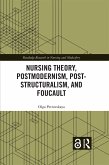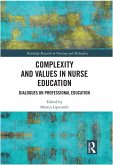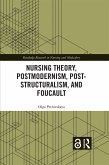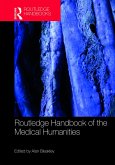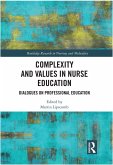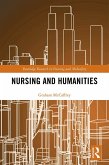Routledge Handbook of Philosophy and Nursing (eBook, ePUB)
Redaktion: Lipscomb, Martin
45,95 €
45,95 €
inkl. MwSt.
Sofort per Download lieferbar

23 °P sammeln
45,95 €
Als Download kaufen

45,95 €
inkl. MwSt.
Sofort per Download lieferbar

23 °P sammeln
Jetzt verschenken
Alle Infos zum eBook verschenken
45,95 €
inkl. MwSt.
Sofort per Download lieferbar
Alle Infos zum eBook verschenken

23 °P sammeln
Routledge Handbook of Philosophy and Nursing (eBook, ePUB)
Redaktion: Lipscomb, Martin
- Format: ePub
- Merkliste
- Auf die Merkliste
- Bewerten Bewerten
- Teilen
- Produkt teilen
- Produkterinnerung
- Produkterinnerung

Bitte loggen Sie sich zunächst in Ihr Kundenkonto ein oder registrieren Sie sich bei
bücher.de, um das eBook-Abo tolino select nutzen zu können.
Hier können Sie sich einloggen
Hier können Sie sich einloggen
Sie sind bereits eingeloggt. Klicken Sie auf 2. tolino select Abo, um fortzufahren.

Bitte loggen Sie sich zunächst in Ihr Kundenkonto ein oder registrieren Sie sich bei bücher.de, um das eBook-Abo tolino select nutzen zu können.
Philosophy offers a means of unpacking and grappling with important questions and issues relevant to nursing practice, research, scholarship, and education. By engaging in these discussions, this Handbook provides a gateway to new understandings of nursing.
- Geräte: eReader
- ohne Kopierschutz
- eBook Hilfe
- Größe: 3.53MB
Andere Kunden interessierten sich auch für
![Routledge Handbook of Philosophy and Nursing (eBook, PDF) Routledge Handbook of Philosophy and Nursing (eBook, PDF)]() Routledge Handbook of Philosophy and Nursing (eBook, PDF)45,95 €
Routledge Handbook of Philosophy and Nursing (eBook, PDF)45,95 €![Nursing Theory, Postmodernism, Post-structuralism, and Foucault (eBook, ePUB) Nursing Theory, Postmodernism, Post-structuralism, and Foucault (eBook, ePUB)]() Olga PetrovskayaNursing Theory, Postmodernism, Post-structuralism, and Foucault (eBook, ePUB)41,95 €
Olga PetrovskayaNursing Theory, Postmodernism, Post-structuralism, and Foucault (eBook, ePUB)41,95 €![Complexity and Values in Nurse Education (eBook, ePUB) Complexity and Values in Nurse Education (eBook, ePUB)]() Complexity and Values in Nurse Education (eBook, ePUB)41,95 €
Complexity and Values in Nurse Education (eBook, ePUB)41,95 €![Nursing Theory, Postmodernism, Post-structuralism, and Foucault (eBook, PDF) Nursing Theory, Postmodernism, Post-structuralism, and Foucault (eBook, PDF)]() Olga PetrovskayaNursing Theory, Postmodernism, Post-structuralism, and Foucault (eBook, PDF)41,95 €
Olga PetrovskayaNursing Theory, Postmodernism, Post-structuralism, and Foucault (eBook, PDF)41,95 €![Routledge Handbook of the Medical Humanities (eBook, ePUB) Routledge Handbook of the Medical Humanities (eBook, ePUB)]() Routledge Handbook of the Medical Humanities (eBook, ePUB)44,95 €
Routledge Handbook of the Medical Humanities (eBook, ePUB)44,95 €![Complexity and Values in Nurse Education (eBook, PDF) Complexity and Values in Nurse Education (eBook, PDF)]() Complexity and Values in Nurse Education (eBook, PDF)41,95 €
Complexity and Values in Nurse Education (eBook, PDF)41,95 €![Nursing and Humanities (eBook, ePUB) Nursing and Humanities (eBook, ePUB)]() Graham McCaffreyNursing and Humanities (eBook, ePUB)45,95 €
Graham McCaffreyNursing and Humanities (eBook, ePUB)45,95 €-
-
-
Philosophy offers a means of unpacking and grappling with important questions and issues relevant to nursing practice, research, scholarship, and education. By engaging in these discussions, this Handbook provides a gateway to new understandings of nursing.
Dieser Download kann aus rechtlichen Gründen nur mit Rechnungsadresse in A, B, BG, CY, CZ, D, DK, EW, E, FIN, F, GR, HR, H, IRL, I, LT, L, LR, M, NL, PL, P, R, S, SLO, SK ausgeliefert werden.
Produktdetails
- Produktdetails
- Verlag: Taylor & Francis eBooks
- Seitenzahl: 534
- Erscheinungstermin: 19. September 2023
- Englisch
- ISBN-13: 9781000928921
- Artikelnr.: 68523519
- Verlag: Taylor & Francis eBooks
- Seitenzahl: 534
- Erscheinungstermin: 19. September 2023
- Englisch
- ISBN-13: 9781000928921
- Artikelnr.: 68523519
- Herstellerkennzeichnung Die Herstellerinformationen sind derzeit nicht verfügbar.
Martin Lipscomb is a Senior Lecturer at the University of Worcester's Three Counties School of Nursing and Midwifery (UK).
1. Introduction. 2.Nursing, Philosophy, and Nursing Philosophy. 3. On the Contribution of the Nursing Theorists. 4.Philosophy of Science and Nursing Research. 5.What is the Art in the Art and Science of Nursing?. 6.The Knowledge of Nursology. 7.(Normative) Moral Theory and Nursing Practice. 8.Nursing: a moral profession?. 9.Remembering the Future: Nursing's Social Ethics. 10.Nursing and Morality in China: The Necessity and Possibility of a Confucian Ethics of Care. 11.Islamic humanism: Towards Understanding Nursing Care for Muslim Patients. 12.Dependency. 13.Pain: Levinas and Ethics. 14.Vulnerability and Relations of Care. 15.Placebo Effect and Nursing. 16.Collectivism, personhood, and the role of patient and family. 17.A hermeneutical agential conception of suffering. 18.Hermeneutic phenomenology, person centred care, and loneliness. 19.Why thriving - and well-being - ought to be fundamental goals in nursing. 20.Life and Death: Nursing responses to euthanasia. 21.Care and Compassion in Nursing. 22.Nursing's endless pursuit of professionalization. 23.Medicine and Nursing Through the Advanced Nurse Practitioner Lens. 24.The promotion of resilience in nursing: reification, second order signification and neoliberalism. 25.Problematizing Moral Distress, Moral Resilience, and Moral Courage: Implications for Nurse Education and Moral Agency. 26.Equality, equity, and distributional justice in nursing: agism and other impediments. 27.Avoiding the Triumph of Emptiness: The Threats of Educational Fundamentalism and Anti-Intellectualism in Nursing Education. 28.Who knew? Towards a sociology of ignorance in nursing. 29.Self-sacrifice in nursing: Taboo or valuable reality?. 30.Is there a personal responsibility for health?. 31.Care and Its Entanglements. 32.Rethinking Holism: Expanding the Lens from Patient Experience to Human Experience. 33.Empathy and Dialogue in Nursing Care. 34.Navigating the Edges of Critical Justice Theory through the Logic of Nursing. 35.Anxiety and moral courage: The path to authentic nursing?. 36.Freedom of speech as a philosophy of nursing. 37.Using Philosophical Inquiry to Dismantle Dominant Thinking in Nursing about Race and Racism. 38.Perpetuating the whiteness of nursing: Enculturation and nurse education. 39.What can queers teach us about nursing ethics?. 40.No as an Act of Care: A Glossary for Kinship, Care Praxis, and Nursing's Radical Imagination. 41.Phenomenology and nursing. 42.Is there anyone here who has a genuine medical problem? Health, illness, and Aristotle. 43.Concept analysis. 44.Epistemic injustice and vulnerability. 45.A process philosophy perspective on the relationality of nursing and leadership. 46.Technology and nursing. 47.Teaching and Learning Clinical Reasoning: Maximizing Human Intelligence, Expert Clinical Reasoning, Scientific Knowledge, and Decision-Making Supports.
1. Introduction. 2.Nursing, Philosophy, and Nursing Philosophy. 3. On the Contribution of the Nursing Theorists. 4.Philosophy of Science and Nursing Research. 5.What is the Art in the Art and Science of Nursing?. 6.The Knowledge of Nursology. 7.(Normative) Moral Theory and Nursing Practice. 8.Nursing: a moral profession?. 9.Remembering the Future: Nursing's Social Ethics. 10.Nursing and Morality in China: The Necessity and Possibility of a Confucian Ethics of Care. 11.Islamic humanism: Towards Understanding Nursing Care for Muslim Patients. 12.Dependency. 13.Pain: Levinas and Ethics. 14.Vulnerability and Relations of Care. 15.Placebo Effect and Nursing. 16.Collectivism, personhood, and the role of patient and family. 17.A hermeneutical agential conception of suffering. 18.Hermeneutic phenomenology, person centred care, and loneliness. 19.Why thriving - and well-being - ought to be fundamental goals in nursing. 20.Life and Death: Nursing responses to euthanasia. 21.Care and Compassion in Nursing. 22.Nursing's endless pursuit of professionalization. 23.Medicine and Nursing Through the Advanced Nurse Practitioner Lens. 24.The promotion of resilience in nursing: reification, second order signification and neoliberalism. 25.Problematizing Moral Distress, Moral Resilience, and Moral Courage: Implications for Nurse Education and Moral Agency. 26.Equality, equity, and distributional justice in nursing: agism and other impediments. 27.Avoiding the Triumph of Emptiness: The Threats of Educational Fundamentalism and Anti-Intellectualism in Nursing Education. 28.Who knew? Towards a sociology of ignorance in nursing. 29.Self-sacrifice in nursing: Taboo or valuable reality?. 30.Is there a personal responsibility for health?. 31.Care and Its Entanglements. 32.Rethinking Holism: Expanding the Lens from Patient Experience to Human Experience. 33.Empathy and Dialogue in Nursing Care. 34.Navigating the Edges of Critical Justice Theory through the Logic of Nursing. 35.Anxiety and moral courage: The path to authentic nursing?. 36.Freedom of speech as a philosophy of nursing. 37.Using Philosophical Inquiry to Dismantle Dominant Thinking in Nursing about Race and Racism. 38.Perpetuating the whiteness of nursing: Enculturation and nurse education. 39.What can queers teach us about nursing ethics?. 40.No as an Act of Care: A Glossary for Kinship, Care Praxis, and Nursing's Radical Imagination. 41.Phenomenology and nursing. 42.Is there anyone here who has a genuine medical problem? Health, illness, and Aristotle. 43.Concept analysis. 44.Epistemic injustice and vulnerability. 45.A process philosophy perspective on the relationality of nursing and leadership. 46.Technology and nursing. 47.Teaching and Learning Clinical Reasoning: Maximizing Human Intelligence, Expert Clinical Reasoning, Scientific Knowledge, and Decision-Making Supports.


